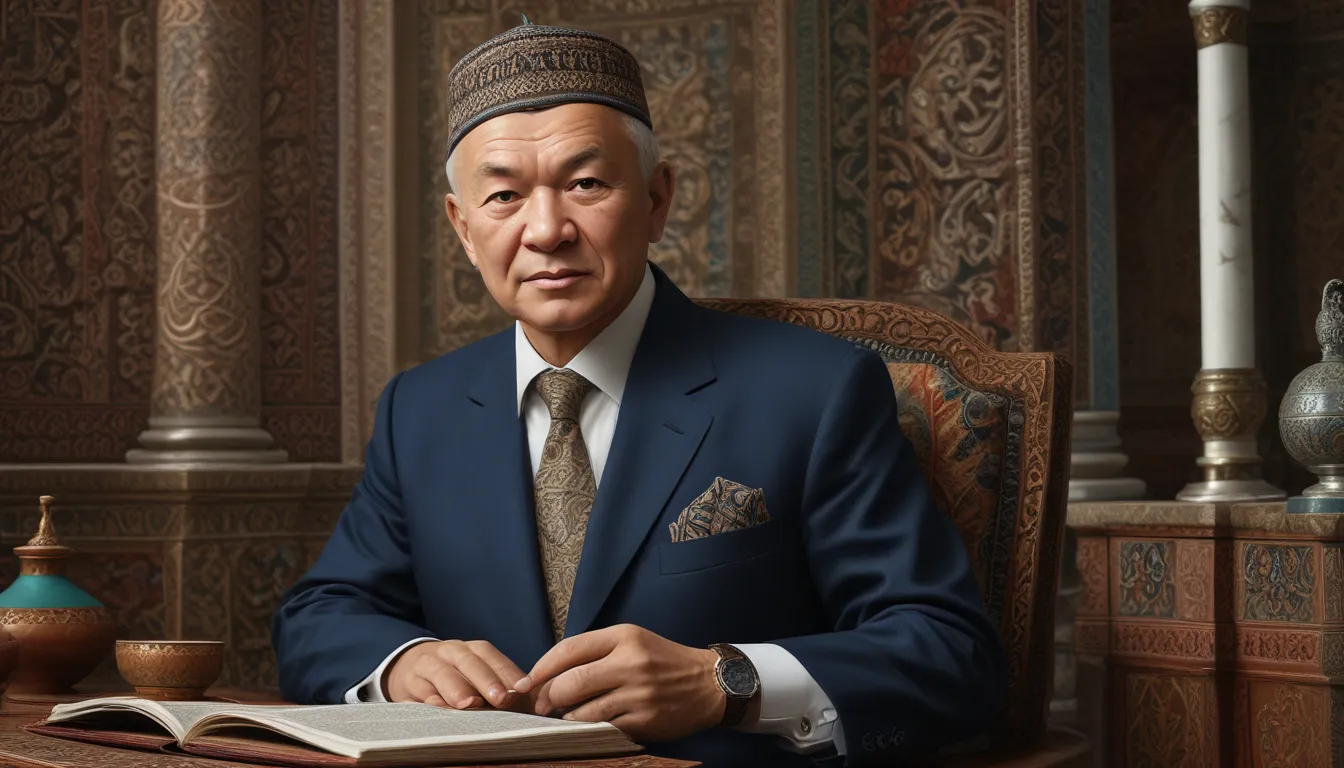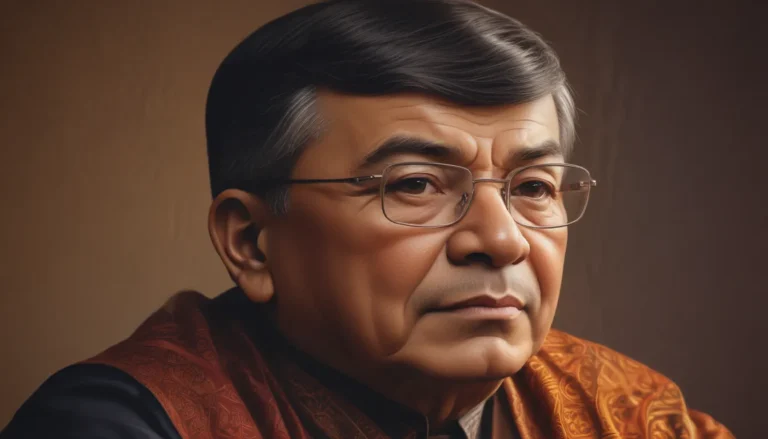The images in our articles may not match the content exactly. They are used to grab your attention, not to show the exact details in the text. The images complement the text but do not replace it.
Welcome to a deep dive into the extraordinary life and legacy of Islam Karimov, the former President of Uzbekistan. From his early days in the Communist Party to his strategic reforms as President, Karimov’s influence on the political, cultural, and economic landscape of Uzbekistan is undeniable. In this article, we will explore 12 remarkable facts about Islam Karimov that shed light on his achievements and the lasting impact he had on the nation.
Key Takeaways:
- Islam Karimov, the former President of Uzbekistan, led the country for over two decades, shaping its political landscape and prioritizing economic development and cultural preservation.
- Karimov’s legacy remains complex and impactful, leaving a lasting imprint on Uzbekistan’s history and development.
The Early Years:
Islam Karimov was born on January 30, 1938, in the culturally rich city of Samarkand, Uzbekistan. His birthplace holds deep historical significance, dating back to ancient times, making it a fitting backdrop for the upbringing of a future leader.
Leadership and Resilience:
Karimov survived an assassination attempt in 1999, a testament to his resilience and steadfast leadership. This event further solidified his position as a strong and unwavering figure in Uzbekistan’s political landscape.
Shaping Uzbekistan’s Independence:
After the collapse of the Soviet Union, Islam Karimov played a crucial role in maintaining Uzbekistan’s independence. In a time of uncertainty, he worked tirelessly to establish and safeguard the country’s autonomy and sovereignty.
Economic Reforms and Modernization:
Recognizing the need for economic development, Karimov implemented significant reforms to transition Uzbekistan to a market-oriented economy. His policies aimed to stimulate private enterprise and foreign investment, driving growth and progress.
Under his leadership, Uzbekistan witnessed vast improvements in infrastructure, including transportation networks, telecommunications, and urban development. Karimov’s commitment to modernization contributed to the country’s overall advancement.
Cultural Preservation:
Karimov prioritized the preservation of Uzbekistan’s rich cultural heritage, emphasizing traditional arts, crafts, and historical landmarks. His dedication to cultural preservation ensured that Uzbekistan’s unique identity thrived amidst modernization efforts.
Challenges and Criticisms:
Despite his accomplishments, Karimov faced criticism for alleged human rights abuses during his presidency. International organizations raised concerns about his record, highlighting the complexities of leadership and governance.
Foreign Policy and Diplomacy:
Karimov adopted a policy of non-alignment in foreign relations, maintaining a delicate balance between global powers. His approach to diplomacy focused on forging relationships without aligning with specific blocs or alliances, ensuring Uzbekistan’s interests were protected.
Combating Extremism:
In response to the rise of religious extremism, Karimov introduced measures to combat its spread in Uzbekistan. His efforts aimed to maintain stability and security in the country, prioritizing the well-being of its citizens.
Legacy and Family Dynamics:
Karimov’s daughter, Gulnara Karimova, became a prominent figure in government but later faced legal troubles and corruption allegations. The complexities of their family dynamics added layers to Karimov’s political legacy, raising further questions and intrigue.
Remembering Islam Karimov:
Islam Karimov passed away on September 2, 2016, leaving a complex political legacy that continues to be a subject of debate. His contributions to Uzbekistan’s history and development are undeniable, shaping the nation in significant ways.
In Conclusion:
Islam Karimov’s leadership style and policies had a profound impact on Uzbekistan, leaving a lasting imprint on its political, economic, and cultural spheres. While his legacy is marked by achievements and controversies, there is no denying the influence he had on the nation’s trajectory.
FAQs
-
Who was Islam Karimov?
Islam Karimov was the first President of Uzbekistan, serving from 1991 until his death in 2016. -
What were some of Islam Karimov’s achievements?
Karimov implemented economic reforms, maintained stability, and shaped Uzbekistan’s foreign policy during his tenure. -
Did Islam Karimov face criticisms?
Yes, Karimov faced criticism for his authoritarian rule, human rights abuses, and lack of political freedom in Uzbekistan. -
How long was Islam Karimov in power?
Islam Karimov was in power for over two decades, from 1991 to 2016. -
What impact did Islam Karimov have on Uzbekistan?
Karimov’s leadership influenced Uzbekistan’s political landscape, economic development, and regional security policies during a critical period. -
How is Islam Karimov remembered today?
Islam Karimov’s legacy is a topic of ongoing debate, with recognition of his contributions to stability and economic growth alongside criticism of his governance style and record on human rights.
As we reflect on the extraordinary life and legacy of Islam Karimov, we gain valuable insights into the complexities of leadership and governance. His impact on Uzbekistan’s history and development is significant, prompting continued discussion and analysis of his lasting influence.






